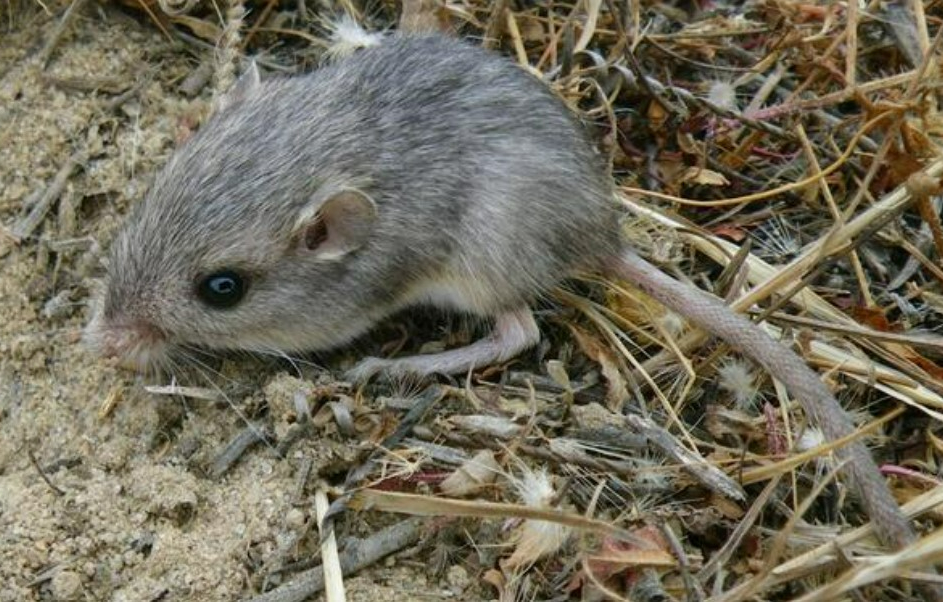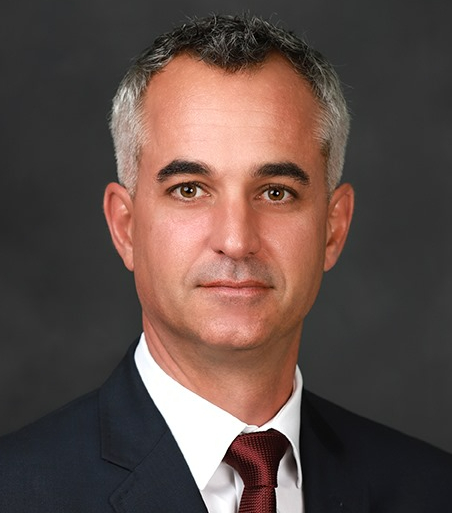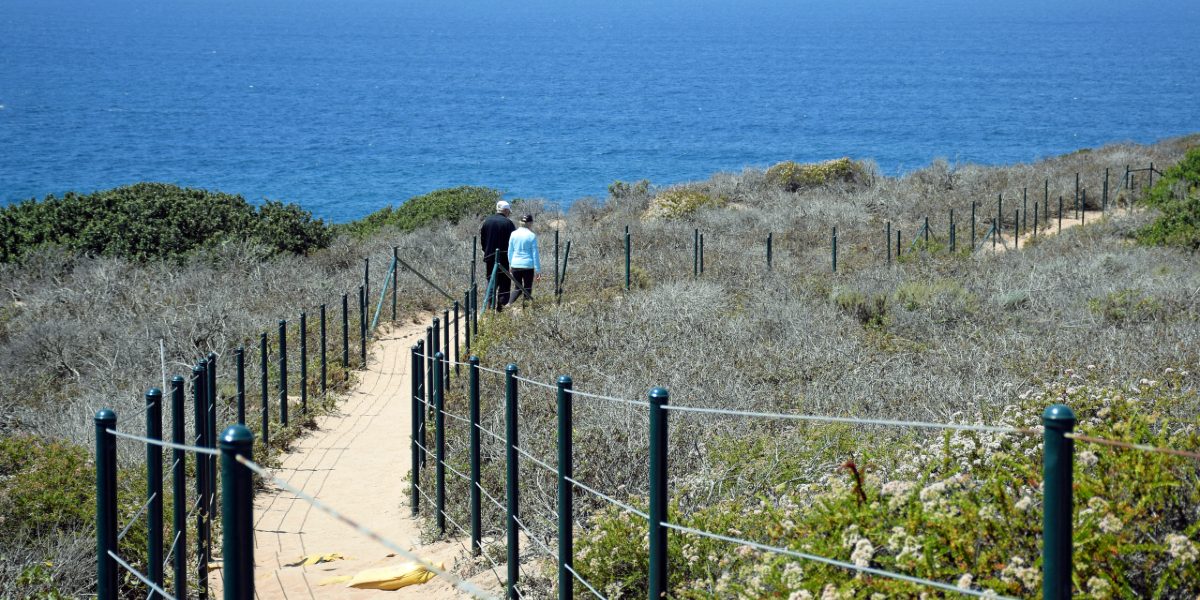For the past few years, the City of Dana Point and an organization named the Center for Natural Lands Management (CNLM) have been locked in a legal and political battle over public access to the 29.4-acre Headlands Nature Preserve – the majestic parcel of open space overlooking the Pacific Ocean that is literally the “Point” in Dana Point.
In the early weeks of the COVID pandemic, CNLM closed all public access to the Headlands, and specifically to the 1.4 mile trail winds along the outer edges of the Headlands and offers spectacular ocean views from the bluffs. According to the City this was done illegally. The Court agreed and issued a preliminary injunction requiring the trail at the Headlands, over which the public holds an access easement, to be reopened. The City and CNLM have been locked in legal combat ever since.
The City wants CNLM, which owns the land under a 2005 agreement, to preserve it as public open space, and to allow people to access the trail pursuant to a public access easement from 7:00 a.m. to sunset, 7-days a week, as was the case before COVID. The City asserts that CNLM used the COVID pandemic mandates as an excuse to close the Headlands trail to the public.
Under pressure from Dana Point, CNLM grudgingly allowed some access – at one point a very restricted basis of two days a week for three hours a day – but has repeatedly rebuffed the City’s requests to resume pre-COVID access hours, claiming that would undermine efforts to safeguard the Pacific Pocket Mouse habitat – which is located in the middle of the open space, a considerable distance from the trail.
However, review of publicly available documents raises questions about both the effectiveness of the CNLM stewardship ’s of the Pacific Pocket Mouse, and the group’s priorities.
The Pacific Pocket Mouse – one of 16 subspecies of the Little Pocket Mouse – was thought to have gone extinct in the 1970s when a population of them was discovered in 1993 in the Headlands – which was already at the center of a years-long battle to preserve it from development. There are only two other known Pacific Pocket Mouse populations – both of them at Camp Pendleton.
Four years ago, the CNLM received an $826,000 grant from the Department of the Navy to “protect the Dana Point [Pacific Pocket Mouse] population in perpetuity.”
Why is the Department of the Navy spending nearly a million dollars on a mouse population that is 40 miles from the nearest Navy or Marine Corps installation? In short, it’s buying the endangered rodent equivalent of “carbon offsets.”

Camp Pendleton is where the 1st Marine Division trains and practices war-fighting: armored vehicle maneuvers, artillery practice, combined arms training, etc. These training activities range over the expansive base – including Pacific Pocket Mouse habitat. Since these “training-related impacts” are “likely to continue to occur,” as the CNLM wrote in its Pacific Pocket Mouse management plan, the Navy is obtaining “regulatory relief” to “offset the potential negative effects” of its training activities on the Camp Pendleton mice by paying the CNLM to “enhance” life for the Headlands mouse population. Think of it as an environmental indulgence: the Navy is paying the CNLM $826,000 to enhance life for Pacific Pocket Mice in the Headlands to offset any Pacific Pocket Mice the Marines run over or blow up.
But is that funding actually enhancing the PPM population in the Headlands?
The claims of concern for the Pacific Pocket Mouse are at the heart of CNLM’s opposition to restoring public access to the Headlands trail to pre-COVID status. In fact, CNLM Co-Executive Director Deborah Rogers, in an April 2, 2024 letter to the City, claims that between January 1 and March 14 of this year, it has documented more than “600 instances of people on the Preserve “after sunset” – when the entry gates automatically lock. There is no mechanism to open the gate from the inside. In its letter, Rogers accuses the City of turning a blind eye to its alleged trespassing problem.
OC Independent has reached out to the CNLM requesting further information on the spree of alleged trespassing incidents, but thus far has received no response.
City officials responded indicating that what CNLM labels as trespassing is actually people unintentionally finding themselves trapped in the Headlands Preserve after the gates automatically shut – the result of what they characterize as CNLM’s sloppy and unprofessional management of public access.
Mayor Jamey Federico pulled no punches when contacted regarding the question of CNLM’s management of public access, saying visitors to the Preserve and trail users frequently find themselves locked due to negligence by the organization.
“This is clearly an instance of mismanagement by CNLM. My local grocery store figured out how to close without locking people inside the store, so I don’t understand how it can’t be done on a single trail that is only accessed through gates at each end,” said Federico. “It seems as though CNLM will not commit the resources to manage the trail in a way that facilitates invaluable public access while maintaining the nearby Pacific Pocket Mouse habitat.”

“It would seem that CNLM’s vast annual payments from the Department of the Navy would provide them the resources necessary to properly manage the trail and the habitat,” said Federico, a retired Marine Corps officer who served 22 years on active duty.”
That grant money isn’t available to fund such current needs because the CNLM, under its agreement with the Navy, has deposited the bulk of the funds in an interest-bearing account:
“$97,988 will be deposited into an interest-bearing account to be used in the first three years of this work and the remainder of the funds ($728,012) will be placed in an endowment to be invested, the earnings of which interest-bearing account will be used in perpetuity for habitat management and enhancement on the Preserve.”
According to the CNLM’s most recent Form 990, the organization has assets of $242,125,104.
Indeed, the City called this out in a staff report last month, stating the group has “significant financial resources” amounting to the “tens of millions of dollars it holds” and a fully-funded multi-million dollar endowment for the Headlands Preserve.
“In the last three years alone. CNLM has also received significant funds from the Department of Defense in connection with an agreement it entered to mitigate for destruction of PPM habitat and loss of PPM specimen at Camp Pendleton.”
“One of the priorities of these funds expressly set forth in related documents is to “Enhance protection of PPM from external threats such as trespass.”
“Yet,” the staff report continues, “[CNLM] is not using its significant financial resources to properly manage the Preserve and promote the PPM.” The City alleges, based on the CNLM’s internal e-mails, that the CNLM’s motivation for restricting public access is based more on a desire to save money rather than protect the Pacific Pocket Mouse.
“The irony in this situation is that CNLM’s attempt to limit the days when the trail is open will only encourage certain visitors to bypass the trail and access the preserve improperly, causing more disturbance to the wildlife,” said Mayor Federico.


